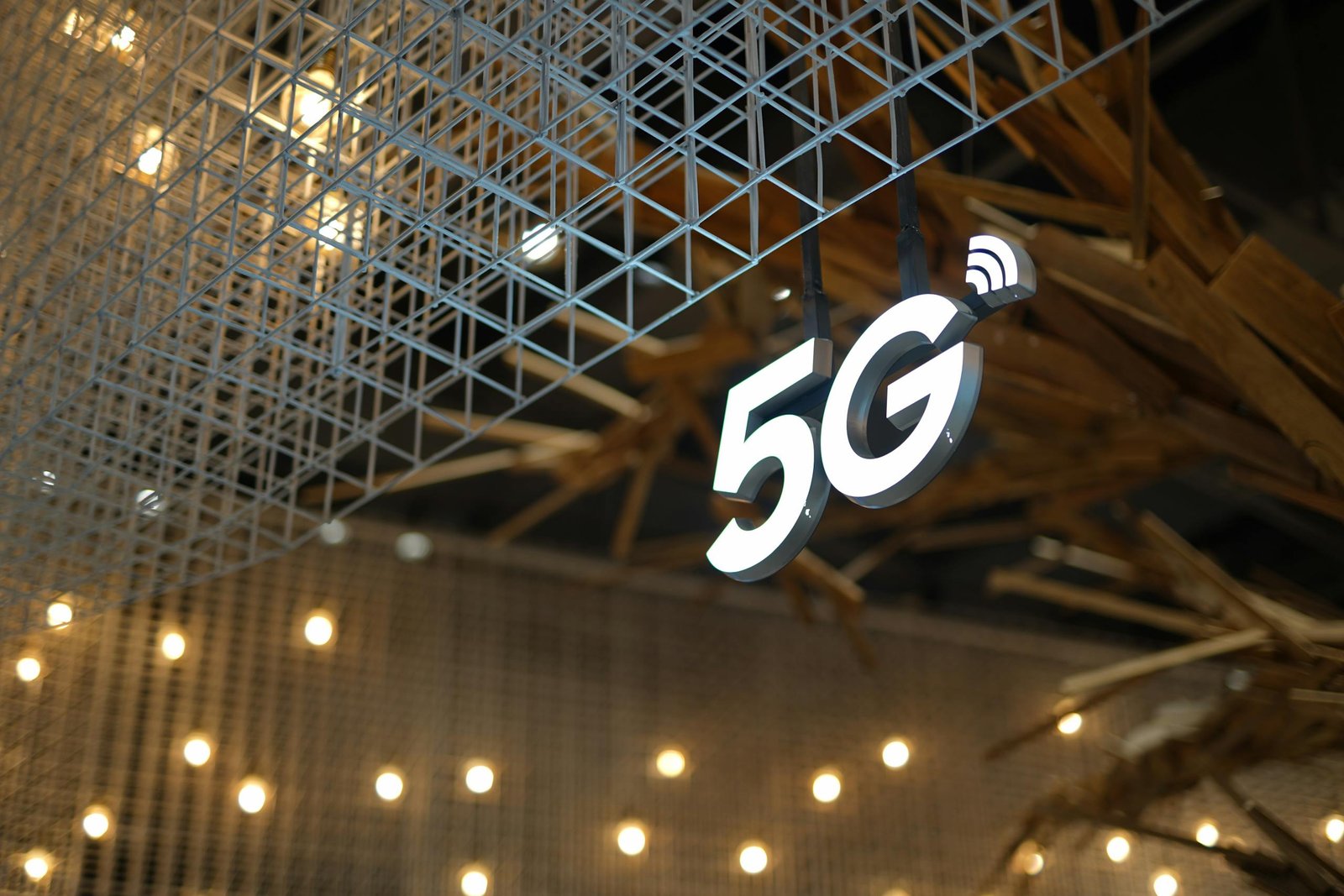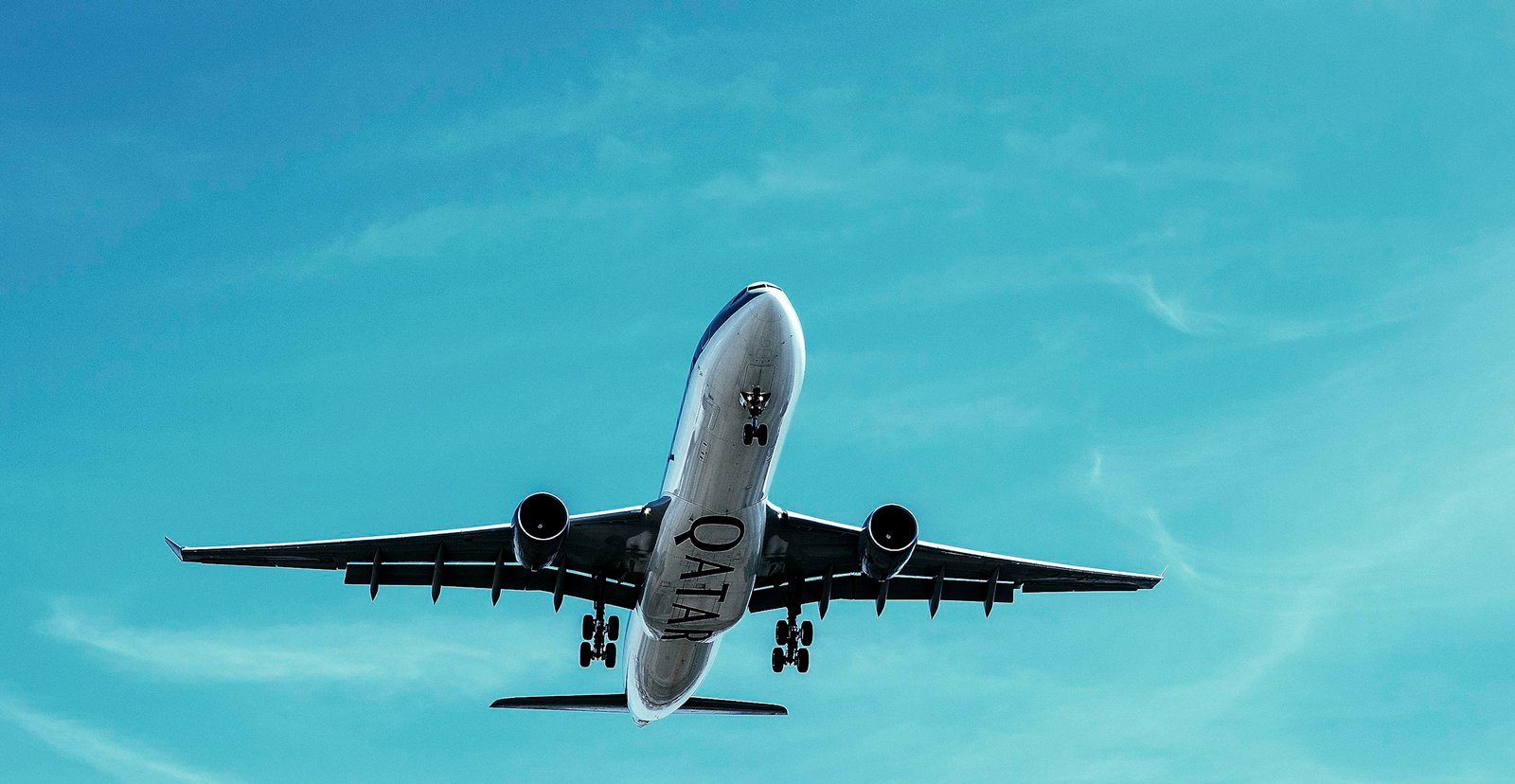5G and Its Impact on the Future of Travel Connectivity
Introduction to 5G Technology
5G technology represents the fifth generation of mobile communication systems, significantly enhancing the capabilities offered by its predecessors, namely 4G and 3G. While 3G was primarily designed to enable mobile browsing and basic smartphone functionalities, and 4G further improved data speeds for streaming and multimedia applications, 5G is engineered to provide unprecedented speeds, greater bandwidth, and remarkably reduced latency. This state-of-the-art technology serves as a foundation for a myriad of advanced applications, transforming user experiences and enabling real-time connectivity across various sectors.
The fundamental advantage of 5G technology lies in its ability to deliver data at astonishing speeds, potentially reaching up to 20 Gbps under optimal conditions. This enhanced speed means that large files can be downloaded in mere seconds, and streaming high-definition content becomes seamless. Furthermore, 5G networks can handle significantly more devices compared to previous generations, empowering the burgeoning Internet of Things (IoT) landscape where connected devices communicate efficiently and effectively.
Another critical component of 5G technology is its reduced latency, which refers to the lag between data transmission and its reception. With latencies as low as 1 millisecond, 5G enables real-time interactions that are vital for applications like autonomous vehicles and remote surgery. This proficiency in handling instantaneous communication fosters innovation across numerous fields, enhancing both convenience and operational efficiency.
As we delve into the implications of 5G for travel connectivity, it is essential to acknowledge how this next-generation technology not only improves existing services but also paves the way for novel experiences that redefine how individuals interact with travel and transportation. The transformative potential of 5G is just beginning to unfold, promising an integrated and enhanced travel experience for users worldwide.
The Promise of Faster and More Reliable Connectivity
The advent of 5G technology brings significant advancements in connectivity that promise to transform the travel experience. This fifth-generation mobile network offers speed and reliability that surpasses its predecessor, 4G, and is set to enhance users’ online experiences while traveling. With the ability to achieve download speeds of up to 10 Gbps, 5G networks can facilitate seamless streaming, real-time updates, and enhanced communication, which are essential for modern travelers.
One of the primary benefits of 5G is its low latency. With latency expected to drop to as low as one millisecond, web pages will load instantaneously, and video calls will be more fluid, thereby enhancing the overall communication experience. This is particularly important for travelers who rely on mobile services for navigation, booking accommodations, and keeping in touch with family or colleagues during their trips. The improved speed and responsiveness achievable through 5G connectivity will not just make traditional online tasks easier, but will also enable new technologies such as augmented reality (AR) and virtual reality (VR), further enriching the travel experience.
According to industry experts, the implementation of 5G networks will lead to a transformative shift in travel services. For instance, airlines can provide passengers with real-time flight updates and personalized services directly through their mobile devices. Moreover, hotels will be able to enhance guest experiences by offering high-speed internet access, allowing for uninterrupted connectivity. Current statistics suggest that roughly 85% of travelers utilize their smartphones to make travel arrangements online, highlighting the critical need for improved connectivity while on the go.
In conclusion, the promise of faster and more reliable connectivity through 5G won’t merely speed up how travelers access information; it will fundamentally change the landscape of travel connectivity, making the overall experience more enjoyable and efficient.
Impact on Internet Access While Traveling
The advent of 5G technology is poised to revolutionize internet access for travelers, fundamentally transforming how individuals connect while on the move. One of the primary advantages of 5G is its significantly higher data speeds compared to previous generations, making it feasible for travelers to engage in high-bandwidth activities, such as streaming videos and participating in video conferences, without the frustrations of slow loading times. This enhanced connectivity means that users will experience seamless internet access, even in regions where coverage was previously limited.
As 5G becomes more widespread, mobile data plans are expected to evolve. With the increased capacity offered by this technology, many service providers may introduce affordable unlimited data plans tailored for travelers, allowing them to use their devices without the constant worry of exceeding data limits. Furthermore, there is a potential for packages specifically designed for frequent travelers that include global roaming perks at reduced rates. This shift could empower users to remain connected to family, friends, or work regardless of their geographical location.
Additionally, the expansion of 5G technology will likely encourage the growth of free Wi-Fi in public spaces, such as airports, cafes, and city centers. Providing free internet access not only enhances the travel experience but also enables travelers to save on mobile data usage. This is particularly beneficial for tourists who rely on internet connectivity for navigation, communication, and research during their journeys. Beyond urban landscapes, 5G’s reach into rural and remote areas will further enhance connectivity, making it easier for travelers to explore less accessible destinations with reliable internet service.
With these advancements, 5G stands to make global travel more convenient and connected, ensuring travelers can stay updated and informed wherever their journeys take them.
Transforming Travel Entertainment
The advent of 5G technology is poised to revolutionize the travel experience, particularly in the realm of entertainment. With significantly faster data transfer speeds and lower latency, travelers can expect seamless access to premium streaming services and immersive virtual reality experiences. This transformative shift fundamentally alters not just the way entertainment is consumed during travel but also the quality and variety of content available.
One of the prime advantages of 5G is the capacity for enhanced in-flight connectivity. Airlines are increasingly investing in advanced 5G capabilities to provide passengers with uninterrupted access to their favorite streaming platforms. This means travelers can enjoy high-definition movies and television shows without buffering, creating a more enjoyable flying experience. For example, providers like Delta Airlines and JetBlue are already trialing 5G services that allow passengers to connect their devices with ease, opening a world of entertainment options, including interactive gaming and real-time content updates.
Additionally, 5G will facilitate the introduction of virtual and augmented reality experiences within airports and aboard aircraft. Imagine boarding a flight and being able to engage with an interactive entertainment system that transports you to far-off destinations through immersive storytelling or provides real-time information about your travel route. Companies such as Emirates are pioneering this approach, integrating VR technology into the travel itinerary and enhancing passenger engagement through captivating narratives, making every journey more entertaining and enriching.
The unique capabilities of 5G technology enable content providers to develop tailored experiences for travelers. Features like personalized streaming playlists or location-based entertainment suggestions will soon become commonplace, ensuring passengers can enjoy content that resonates with their preferences. As the travel industry continues embracing these innovations, passengers will undeniably witness a remarkable evolution in how they indulge in entertainment while on the move.
Revolutionizing Travel Communication
The advent of 5G technology promises to radically transform communication modalities for travelers around the globe. With its unparalleled speed and reliability, 5G ushers in a new era of connectivity that can significantly enhance the travel experience. One of the primary benefits of 5G is its capacity to support instant messaging and video calls without the constraints of lag and buffering, making it feasible for travelers to stay connected with friends, family, or work associates in real-time, regardless of their geographical location.
Moreover, the integration of 5G with smart devices will facilitate seamless communication while on the move. Smartwatches and mobile applications will benefit from enhanced connectivity, enabling travelers to receive timely updates regarding flight statuses, hotel bookings, or local events. This connectivity ensures that travelers are always informed, leading to better decision-making during their journeys.
The implications of 5G are not limited to personal communication; it extends its transformative impact to customer service within travel companies as well. With real-time support powered by improved connectivity, travel agencies and airlines can provide unparalleled service to their customers. Chatbots and virtual assistants, backed by 5G capabilities, will be capable of addressing inquiries instantly and efficiently. Travelers can receive prompt assistance regarding changes in travel itineraries, special requests, or location-based questions, thereby enriching their overall travel experience.
Furthermore, the enhanced communication fostered by 5G can aid in crises or emergencies during travel. Real-time alerts regarding natural disasters, safety updates, and important health advisories can be disseminated swiftly, ensuring travelers are well-prepared. The combination of instantaneous communication and reliable support enhances not only convenience but also the sense of security that is paramount during travel.
Potential Challenges and Concerns
The advent of 5G technology is accompanied by a set of challenges and concerns that warrant careful consideration. While the promise of enhanced travel connectivity is enticing, several potential vulnerabilities could impede its widespread adoption. One significant challenge is the security of 5G networks. As these networks become more integral to critical infrastructure, the risks of cyberattacks increase. Malicious actors could exploit security vulnerabilities, potentially compromising sensitive travel data or disrupting essential services, which raises the necessity for robust security measures to protect users.
Moreover, connectivity issues are a pressing concern, particularly in rural or less-developed regions. While urban areas may benefit from seamless 5G integration, many locations could still experience limited or nonexistent 5G coverage. This discrepancy could create a digital divide, where urban travelers enjoy superior connectivity while others are left behind. The uneven distribution of 5G infrastructure highlights the need for strategic investment and planning to ensure equitable access for all consumers and businesses, regardless of geographical location.
Another noteworthy issue related to the roll-out of 5G technology is the need for significant infrastructure upgrades. Transitioning from 4G to 5G necessitates an extensive overhaul of existing telecommunications systems, including the installation of new antennas and fiber-optic cables. This transformation can be a costly and time-consuming process that may disrupt services during implementation. Additionally, there are ongoing debates regarding health concerns associated with 5G technology, particularly concerning the potential biological effects of increased exposure to radiofrequency radiation. While the majority of scientific research indicates that 5G poses no significant health risks, public perception and sentiment around this topic remain divided.
The Role of Airlines and Travel Companies
The advent of 5G technology is anticipated to revolutionize various sectors, with the airline and travel industry being one of the most significantly impacted. As companies eagerly prepare to integrate 5G into their operations, a noticeable shift in consumer experience is expected. Airlines and travel service providers are actively collaborating with technology firms to enhance connectivity and streamline services. These partnerships aim to harness the capabilities of 5G networks, providing faster internet access, improved in-flight services, and enhanced communication options.
Several airlines have already initiated pilots and projects to implement 5G onboard their flights. This technology promises to deliver greater bandwidth and lower latency, which translates to smoother video streaming, quicker downloads, and a more reliable connection. For instance, some carriers are testing 5G-enabled Wi-Fi that allows passengers to maintain seamless internet access during their journeys, enhancing overall customer experience. The integration of 5G also opens doors for innovative applications, such as augmented reality, which can enrich flight entertainment options and provide real-time information about destinations.
Moreover, travel companies are exploring how 5G can facilitate better customer interaction and support. This includes using high-speed networks to enable virtual consultations, allowing travelers to receive personalized advice from travel agents or corporation representatives while they are on the move. As more businesses invest in this technology, consumers can anticipate tailored travel experiences that cater to their specific preferences and needs.
As the rollout of 5G across various regions continues to advance, the airline and travel industries are positioned to leverage this new level of connectivity. By embracing this change, they can prepare for an innovative future that significantly enhances the efficiency and enjoyment of travel.
Case Studies: Cities Embracing 5G for Tourism
The advent of 5G technology is revolutionizing the tourism industry in various cities worldwide, enabling a new era of connectivity that enhances traveler experiences. One notable example is Barcelona, Spain, where 5G has been deployed across key tourist attractions. The city has integrated augmented reality (AR) applications that provide visitors with immersive historical insights and real-time multilingual guidance. By leveraging high-speed connectivity, Barcelona is not only enriching its cultural offerings but also attracting tech-savvy tourists seeking unique experiences.
Another city making strides in integrating 5G into its tourism strategy is Seoul, South Korea. The city has implemented smart tourism solutions that utilize 5G networks to enhance navigation through quick access to travel information. With the introduction of 5G-enabled chatbots and virtual guides, travelers can receive personalized recommendations in real time, improving their overall satisfaction. This connectivity drives increased foot traffic to local businesses while positioning Seoul as a leading smart city for tourists.
Additionally, San Francisco has initiated a project to install 5G nodes throughout its iconic landmarks. This infrastructure upgrades aim to support high-bandwidth attractions such as live-streaming events and interactive mobile applications. By allowing visitors to share their experiences instantaneously, San Francisco has significantly amplified its global presence, thereby fostering economic growth while also creating vibrant community interactions.
In a more localized initiative, the coastal city of Gold Coast, Australia, has rolled out 5G networks to enhance the experiences of its visitors at theme parks and beaches. Enhanced connectivity facilitates seamless transactions for mobile ticketing, real-time updates on park activities, and immersive experiences like virtual reality tours. Such advancements not only enhance guest satisfaction but also incentivize longer stays and higher spending, ultimately benefiting the local economy.
Cumulatively, these case studies illustrate that the integration of 5G technology in tourism not only serves to enhance the travel experience but also stimulates local economies by attracting a wider demographic of visitors. As more cities adopt this technology, the potential for growth within the tourism sector becomes increasingly pronounced.
Conclusion: The Future of Travel Connectivity with 5G
As we reflect on the transformative impact of 5G technology on travel connectivity, it is evident that the advancements brought about by this innovation are set to redefine how travelers interact with the world. One of the primary benefits of 5G is its capacity to facilitate faster and more reliable communication, which is paramount for passengers who depend on seamless connectivity while on the move. With speeds up to 100 times faster than 4G, travelers will experience minimal buffering during video calls, enhanced access to real-time information, and improved navigation tools that are crucial for efficient travel management.
Moreover, 5G’s low latency greatly enhances applications that rely on instant data exchange, such as augmented reality (AR) and virtual reality (VR) services. These technologies offer enriched experiences, allowing users to explore destinations before arrival and enabling innovative travel services tailored to individual preferences. The enhanced connectivity fosters opportunities for smarter applications in travel booking, such as AI-driven recommendations and automated customer service, thus streamlining the overall travel process.
Looking ahead, the integration of 5G connectivity into transportation infrastructure holds significant promise. This advancement may lead to the development of smart airports and interconnected transportation networks, which could drastically reduce wait times and improve overall efficiency. Furthermore, we foresee potential developments in autonomous transport systems, effectively revolutionizing the way we travel. In light of these innovations, travelers will need to adapt to changing technologies and expectations, eagerly embracing new modes of engagement and navigation once thought impossible.
In conclusion, the future of travel connectivity is poised to be profoundly impacted by 5G technology. The possibilities are immense, and as this technology continues to evolve, it is crucial for travelers to remain adaptable, informed, and prepared to leverage these advancements in their journeys. As we stand on the brink of this exciting new chapter, embracing the potential of 5G will undoubtedly elevate the travel experience to unprecedented heights.
Avi is a researcher educated at the University of Cambridge, specialising in the intersection of AI Ethics and International Law. Recognised by the United Nations for his work on autonomous systems, he translates technical complexity into actionable global policy. His research provides a strategic bridge between machine learning architecture and international governance.







